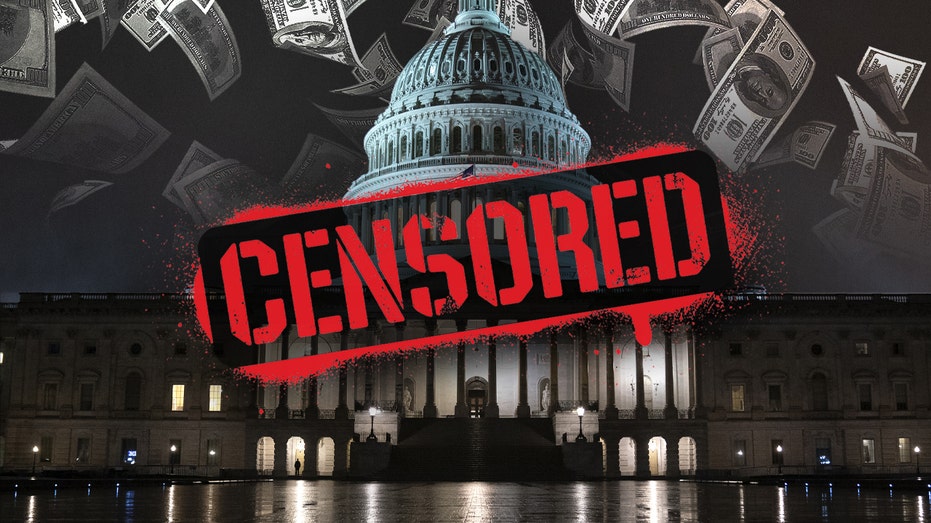
A State Department agency is set to be refunded in the upcoming continuing resolution (CR) bill despite being panned by conservatives for its alleged blacklisting of Americans and news outlets.
A State Department agency – which has been chided by conservatives for its alleged blacklisting of Americans and news outlets – is set to be refunded in the continuing resolution (CR) bill currently being hammered out among lawmakers on Capitol Hill.
The Global Engagement Center has been included in page 139 of the CR. Although it doesn’t specify its budget allocation, a previous Inspector General report shows the agency’s FY 2020 budget totaled $74.26 million, of which $60 million was appropriated by Congress.
The provision in the CR can be found under “Foreign Affairs Section 301. Global Engagement Center Extension,” and comes despite the State Department saying in response to a lawsuit that it intended to shut down the agency by next week.
The GEC, according to reporter Matt Taibbi, “funded a secret list of subcontractors and helped pioneer and insidious—and idiotic—new form of blacklisting” during the pandemic.
Taibbi wrote last year when exposing the Twitter Files that the GEC “flagged accounts as ‘Russian personas and proxies’ based on criteria like, ‘Describing the Coronavirus as an engineered bioweapon,’ blaming ‘research conducted at the Wuhan institute,’ and ‘attributing the appearance of the virus to the CIA.’”
“State also flagged accounts that retweeted news that Twitter banned the popular U.S. website ZeroHedge, claiming it ‘led to another flurry of disinformation narratives.'” ZeroHedge had made reports speculating that the virus had a lab origin.
Elon Musk previously described the GEC as being the “worst offender in US government censorship & media manipulation.”
“They are a threat to our democracy,” Musk wrote in a subsequent tweet.
The GEC is part of the State Department but also partners with the Federal Bureau of Investigation, the Central Intelligence Agency, the National Security Agency, the Defense Advanced Research Projects Agency, the Special Operations Command and the Department of Homeland Security. The GEC also funds the Atlantic Council’s Digital Forensic Research Lab (DFRLab).
Taibbi offered various instances in which the DFRLab and the GEC sent Twitter a list of accounts they believed were engaged in “state-backed coordinated manipulation.” However, a quick glance from Twitter employees determined that the list was shoddy and included the accounts of multiple American citizens with seemingly no connection to the foreign entity in question.
DFRLab Director Graham Brookie previously denied the claim that they use tax money to track Americans, saying its GEC grants have “an exclusively international focus.”
A 2024 report from the Republican-led House Small Business Committee criticized the GEC for awarding grants to organizations whose work includes tracking domestic as well as foreign misinformation and rating the credibility of U.S.-based publishers, according to the Washington Post.
The State Department, in response to a lawsuit, said it intended to shut down the agency on Dec. 23. But the CR provision means, if passed, it will continue to operate.
The lawsuit was brought by Texas Attorney General Ken Paxton, the Daily Wire and the Federalist, who sued the State Department, Secretary of State Antony Blinken, and other government officials earlier this month for “engaging in a conspiracy to censor, deplatform and demonetize American media outlets disfavored by the federal government.”
The lawsuit stated that the GEC was used as a tool for the defendants to carry out its censorship.
“Congress authorized the creation of the Global Engagement Center expressly to counter foreign propaganda and misinformation,” the Texas Attorney General’s Office said in a press release. “Instead, the agency weaponized this authority to violate the First Amendment and suppress Americans’ constitutionally-protected speech.
The complaint describes the State Department’s project as “one of the most egregious government operations to censor the American press in the history of the nation.’”
The lawsuit argued that The Daily Wire, The Federalist, and other conservative news organizations were branded “unreliable” or “risky” by the agency, “starving them of advertising revenue and reducing the circulation of their reporting and speech—all as a direct result of [the State Department’s] unlawful censorship scheme.”
Meanwhile, America First Legal, headed up by Stephen Miller, President-elect Trump’s pick for deputy chief of staff for policy, revealed that the GEC used taxpayer dollars to create a video game called “Cat Park” to “Inoculate Youth Against Disinformation” abroad.
The game “inoculates players … by showing how sensational headlines, memes, and manipulated media can be used to advance conspiracy theories and incite real-world violence,” according to a memo obtained by America First Legal.
Mike Benz, the executive director at the Foundation For Freedom Online, said the game was “anti-populist” and pushed certain political beliefs instead of protecting Americans from foreign disinformation, per the Tennessee Star.
A State Department spokesperson said the agency does not comment on pending legislation when asked for comment by Fox News Digital.
Fox News Digital reached out to the GEC for comment on its potential refunding but did not immediately receive a response.
Fox News Nikolas Lanum and Louis Casiano contributed to this report.